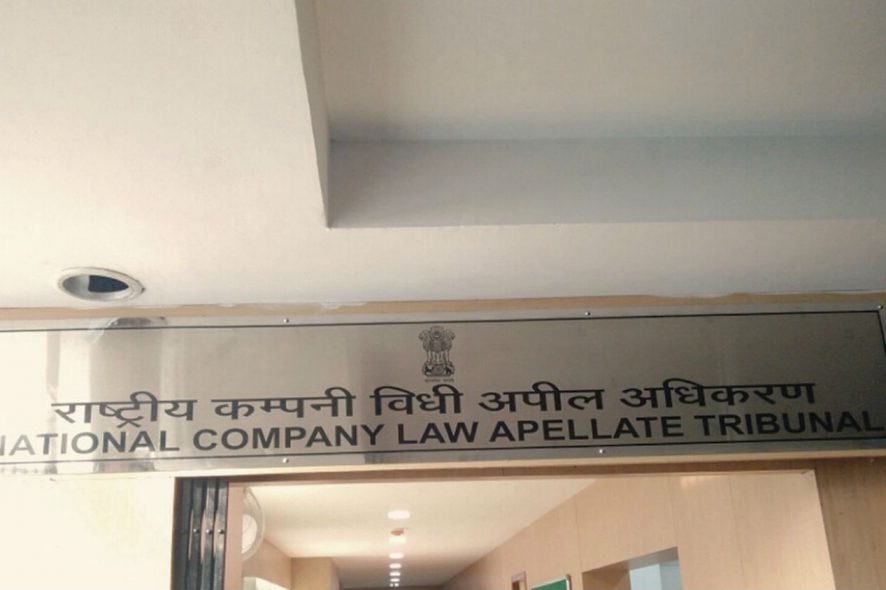National Company Law Appellate Tribunal (NCLAT): A Coram of Venugopal M. (Judicial Member) and Shreesha Merla (Technical Member), while addressing the present company appeal observed that,
“…subject lease rentals arising out of use and occupation of a cold storage unit which is for Commercial Purpose is an ‘Operational Debt’ as envisaged under Section 5 (21) of the I&B Code.”
National Company Law Tribunal, Mumbai’s Order has been challenged in the present appeal.
Leave & License Agreement
National Agriculture Co-operative Marketing Federation of India Ltd./Operational Creditor and the Corporate Debtor entered into a Leave and License Agreement for the usage of cold storage facilities for a period of 3 years.
As per Clause 1.14 of the said Agreement, in case of default in payment of any monthly licence fee, the Corporate Debtor would be liable to pay an interest @ 21% p.a. for the delayed period.
Default in Payment
The first respondent stated that the Corporate Debtor defaulted in the payment of monthly rentals. Further, the first respondent stated that the Corporate Debtor acknowledged and confirmed the ‘outstanding debt’ but despite a number of reminders and eviction notice, the debt was not paid.
In view of the above, a demand notice under in Form 3 under Section 8 of I&B Code, 2016 was issued.
Corporate Debtor denied all the above-stated claims and sought the renewal of Leave and License Agreement.
Counsel for the Appellant vehemently argued that the ‘Adjudicating Authority’ had passed an ‘Ex-Parte Order’ without giving it a sufficient opportunity to be heard.
Tribunal | Decision Analysis
Opportunity of being heard
Tribunal found force in appellant counsel’s submission that the appellant was in custody during the period and hence the minimal delay of 9 days ought to be condoned.
Tribunal noted that letters dated 15-07-2019 and 18-09-2019 were received by the Advocate for the Corporate Debtor which establish that the Corporate Debtor was aware of the proceedings.
Additionally, the Corporate Debtor is a Private Limited Company and it cannot be stated that it could not have been represented by any other person merely because the Director of the Corporate Debtor Company, was in custody.
Hence in view of the above-stated reasons, tribunal opined that sufficient opportunity was given.
- Whether due, if any, arising from the ‘Leave and license Agreement’ is construed as an ‘Operational Debt’?
- Whether there is any ‘Pre-Existing Dispute’ prior to the issuance of the Demand Notice?
Criteria to prove a ‘Debt’ as an ‘Operational Debt’
(a) Claim in respect of provisions for goods and services
(b) Employment or debt in respect of dues and
(c) Such repayment of dues which should arise under any law in force at that time.
Whether the First Respondent by providing ‘Lease’ would be treated as an ‘Operational Creditor’, it is necessary to ascertain whether the First Respondent is providing services to the Corporate Debtor and whether the alleged dues fall within the meaning of Section 5 (21) of the Code?
Appellant’s Counsel relied on the Tribunal’s decision in M. Ravindranath Reddy v. G. Kishan,2020 SCC OnLine NCLAT 84 wherein it was observed that the appellant being a tenant, having not made any claim in respect of the provisions of the goods or services and debt in respect of repayment of dues does not arise under any law for the time being in force payable to the Central Government or State Government.
Tribunal stated that since the law has not gone into defining goods or services– hence, one has to rely on general usage of the terms so used in the law, with due regard to the context in which the same has been used.
Bankruptcy Law Reforms Committee (BLRC), in its report dated November 2015 recommends the treatment of lessors/landlords as Operational Creditors. However, in the definition adopted by the Legislature only claims relating to ‘Goods and Services’ were included within the definition and purview of ‘Operational Debt’.
In view of the terms and conditions of the Leave and License Agreement, appellants have leased out the premises for ‘Commercial Purpose’ which comes under the meaning of ‘Service’ for the purpose of Section 5(21) of the I&B Code, 2016.
Therefore, as the premises in the case on hand is leased out for ‘Commercial Purpose’, the cold storage owner/NAFED on collection is required to pay ‘service tax’ which is reflected in the tax invoices and ‘Ledger Accounts’ which is part of the record filed.
Further, with regard to issue number second, it was noted that though the Agreement was terminated, yet the Corporate Debtor continued to be in possession of the said storage facility and even sought an extension for a further period of 2 years.
Hence, Tribunal stated that ‘Debt’ was ‘ due and payable’.
Test of ‘existence of a dispute’ | Pre-Existing Dispute
It is evident on applying the test of ‘existence of dispute’ that without going into merits of the disputes, the argument raised by the Appellant cannot be construed as a plausible contention requiring further investigation or an assertion of facts supported by evidence.
A dispute does not truly exist in fact between the Parties and, therefore, this Tribunal held that the communication on record specifically the letter dated 19-09-2018, addressed by the Appellant themselves prior to the issuance of the Demand Notice clearly established that there is a ‘Debt due and payable’ and there is no ‘Pre-Existing Dispute’.
Tribunal also relied on the Supreme Court decision in Mobilox Innovations (P) Ltd. v. Kirusa Software (P) Ltd., (2018) 1 SCC 353.
In view of the above, the present appeal failed. [Anup Sushil Dubey v. National Agriculture Co-operative Marketing Federation of India Ltd., 2020 SCC OnLine NCLAT 674, decided on 07-10-2020]



